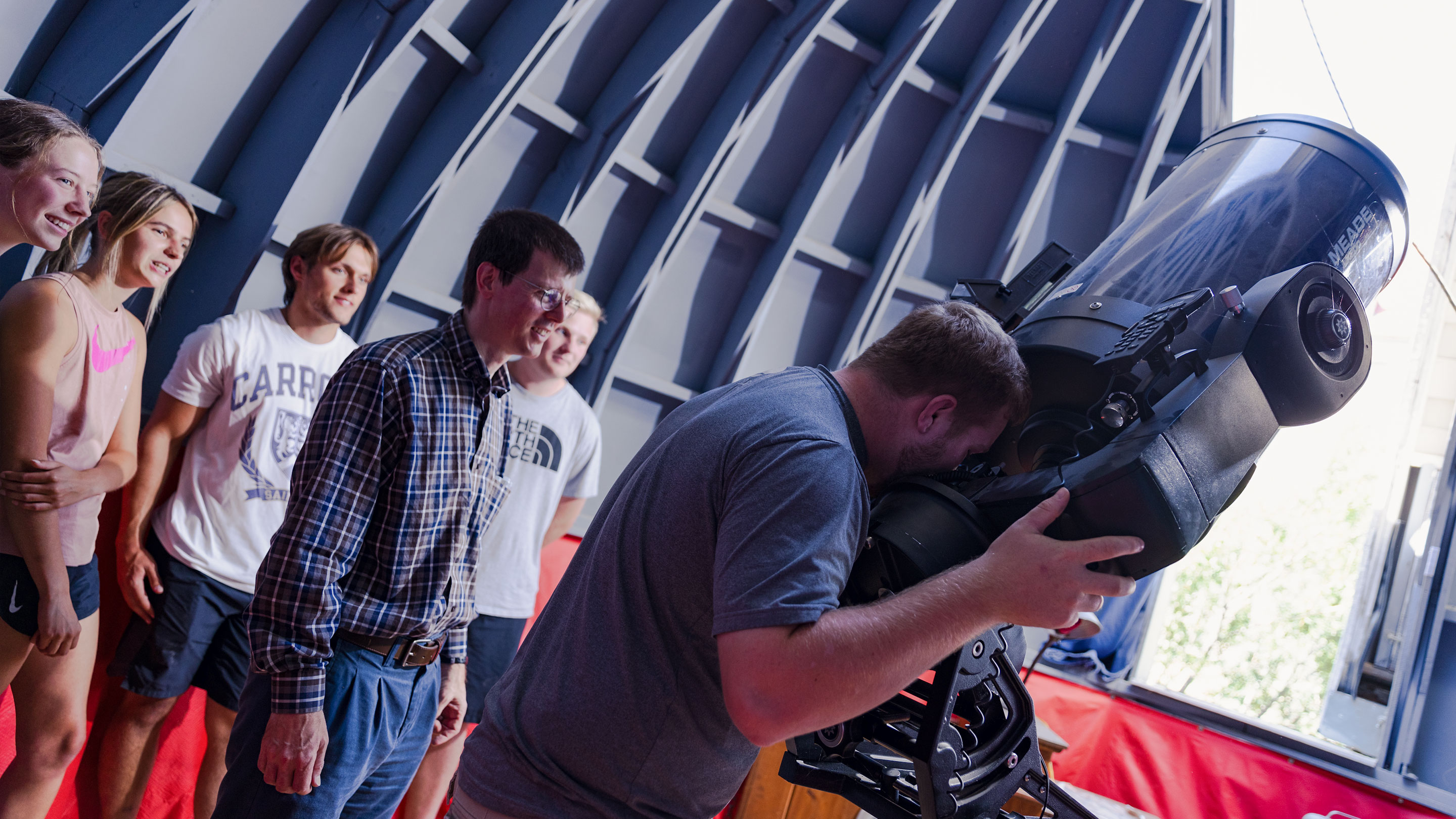Our Physics minor program is designed to acquaint students with topics like relativity, quantum physics, and optics—topics you don't generally see in the introductory courses for engineering and natural science majors. The courses are intended to help students develop into successful and creative thinkers, who are able to analyze a wide variety of problems, apply appropriate models to them, and derive quantitative predictions from those models.

Physics
Details
At Carroll, our Physics courses focus is on introducing you to the basic ideas of modern physics: along the way, you'll hone your mathematical problem-solving skills, create computer simulations, and do labs with lenses, lasers, and holography.
- Minor

About the Program
These problem-solving skills are developed in the context of a curriculum that provides a solid grounding in the fundamental concepts of mathematics and physics, while still allowing students the freedom to explore diverse interests in other areas of the liberal arts. Innovative and engaging entry-level courses for freshmen, together with a close linkage to Carroll's strong program in applied mathematics, are offered for those interested in physics.

We present these challenges and then different groups and different teams solve them in different ways. And so it's a way that people can be creative and try different ways of exploring things and every group has its own unique ideas.
Dr. Kelly Cline Physics Professor

Robotics & Experimental Physics
The Robotics and Experimental Physics course, taught by Dr. Kelly Cline, is part of the physics program being offered at Carroll. This class gives students a more hands-on learning experience.
Featured Courses
Browse all coursesPhysics Using Calculus: Mechanics
Learn how to build and control simple robotic devices, and along the way, you will learn the fundamentals of logic and control common to all computer programming languages.
Electromagnetism
An intermediate course utilizing vector calculus to study electrostatic and magnetostatic fields, both in vacuum and in matter.

What You Will Learn
Students should be well-prepared for either employment or graduate study in physics or related technical areas. In particular, they should be able to:
- evaluate and interpret data and analyze information from a variety of sources
- know or quickly learn how to operate various types of laboratory equipment, including computer-controlled data acquisition
- develop and analyze mathematical models for physical phenomena
- apply appropriate approximations that render mathematical problems amenable to analytical solutions or accurate computer simulations
- communicate effectively, whether orally or in writing, with both technical and non-technical audiences
You’ll learn much of the physics needed for summer Research Experiences for Undergraduates (“REU’s”) in cutting-edge problems at universities across the country.
You’ll know more about how the universe works than most other science, engineering, or math majors.